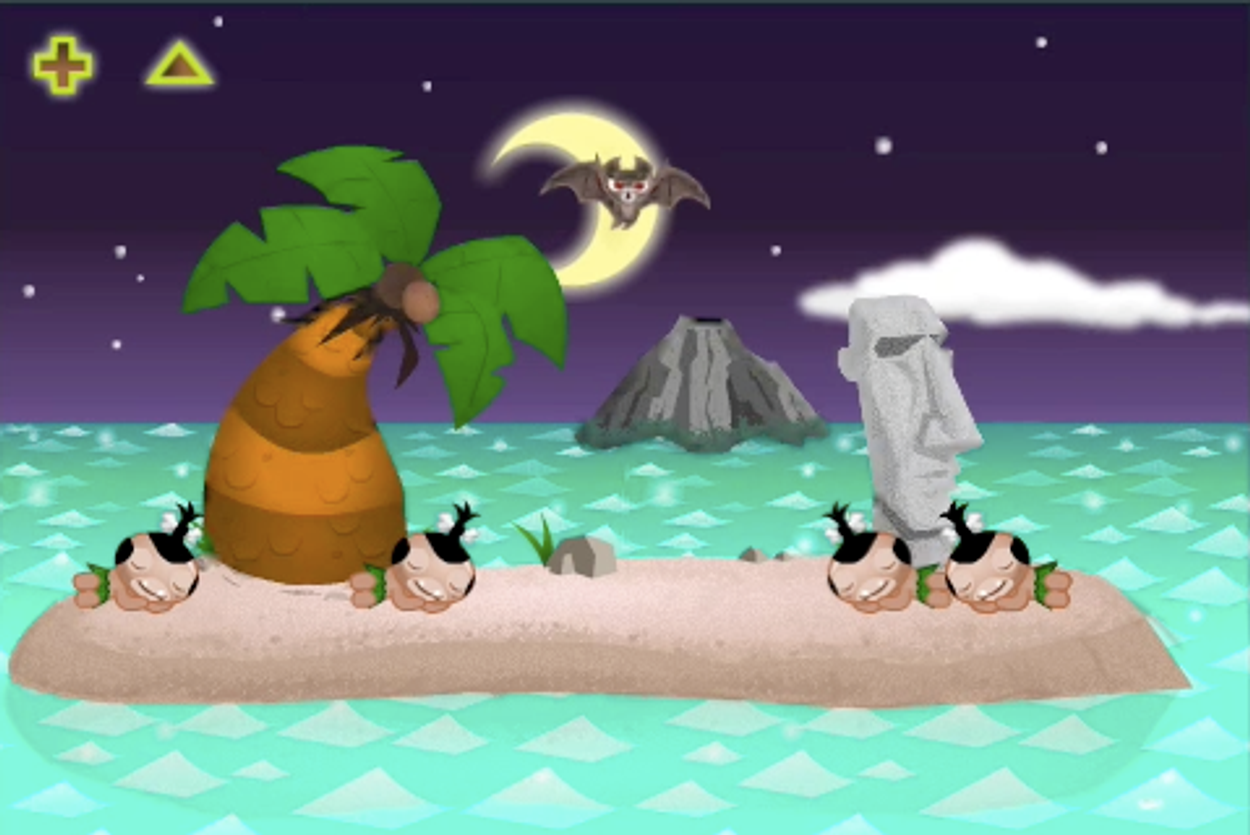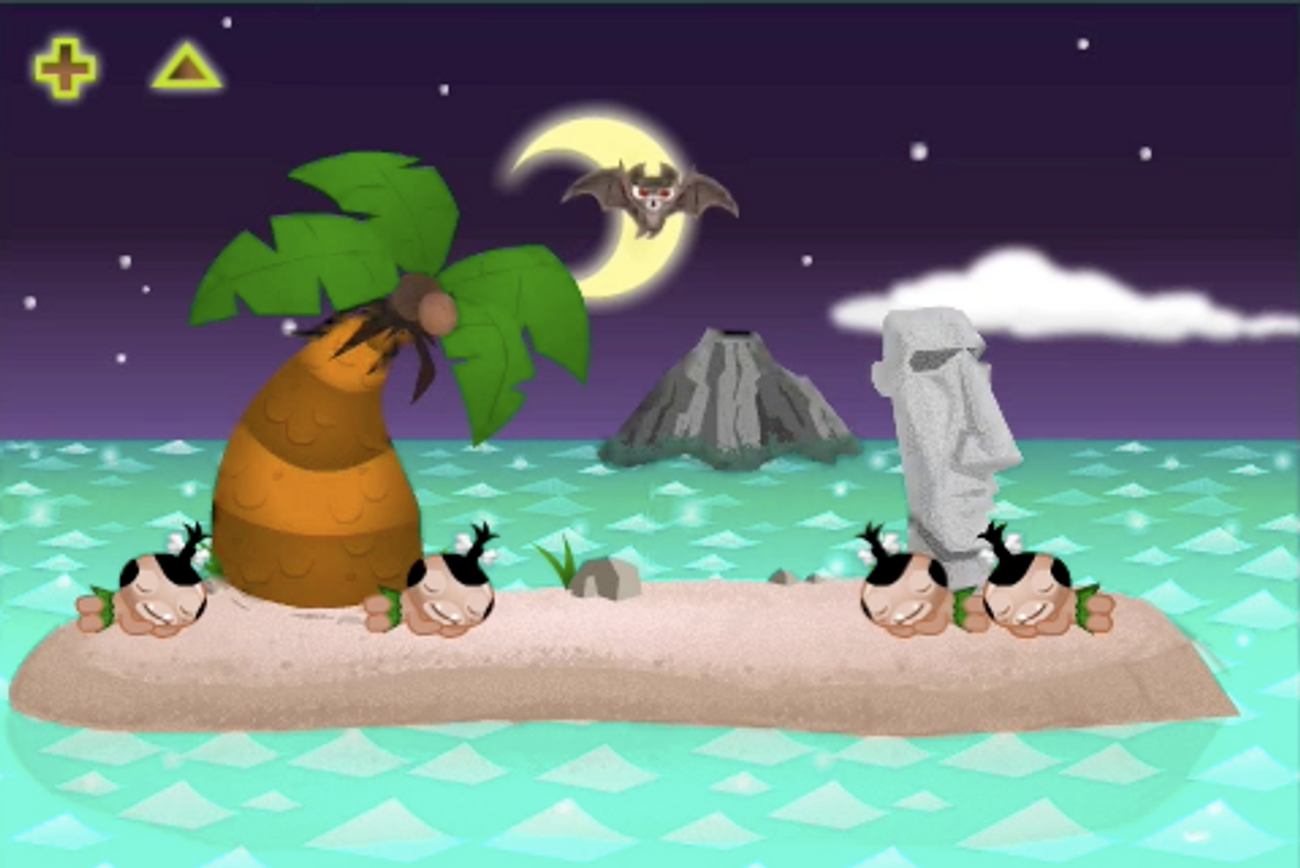iGod the Almighty
A Torah portion of omnipotence and violence




It might’ve been my brand new iPhone. It might’ve been the Torah portion. It might’ve been the relentless rain that, at some point, began to seem like a punishment from the heavens. Whatever it was, I recently had the strong urge to play God.
I’m surprised this hadn’t happened before. Writing a weekly Torah column, one gradually learns how to suspend all the machinations of modernity and indulge in the stark rules of simpler times. Smiting seems like a perfectly normal reaction, the plague like a plausible occurrence, and God is everywhere present and involved. In a world burdened by economic uncertainty, geopolitical unrest, and celebrity memorial services, this ancient mindset is not without its charms.
Usually, it is the humans that capture my attention: what, I occasionally found myself thinking, would I have done in Moses’ place? How would I have suffered Joseph’s tribulations? Abraham’s trials? But this week, it was the Supreme Being that was foremost on my mind.
It began with the parasha. In it, the five daughters of the deceased—and deliciously named—Zelophehad petition Moses, arguing that as Jewish tradition allows only males to inherit their fathers’ property, a clan such as their own, consisting only of women, is doomed. Why, they plea, must the name of Zelophehad perish? Why couldn’t his daughters enjoy his fortune and continue his lineage?
Moses brings this before God, and the Almighty doesn’t skip a beat: “Zelophehad’s daughters speak justly,” he says. “You shall certainly give them a portion of inheritance along with their father’s brothers, and you shall transfer their father’s inheritance to them.”
A lesser deity might have scoffed, resenting the insolent humans questioning His commands. A more apathetic creator might have shrugged His heavenly shoulders, leaving the matter for His wretched creatures on earth to resolve. But not our God; He is never beyond hearing the pleas of his people, never averse to conversing with commoners. He listened, and He acted accordingly.
This, I thought, was a particularly moving moment, and after dwelling on it for a long while I felt some mindless distraction was well-deserved. I whisked out my iPhone, and turned to one of the new applications I had recently downloaded, a game called “Pocket God.”
The premise is simple: the player is the invisible Lord of a small Pacific island, on which pudgy pygmies live happily. That is, if one lets them: the game’s greatest pleasure, which helped propel it to great heights on Apple’s iTunes sales chart, is inflicting all manner of otherworldly calamities on the unsuspecting creatures. Tilt the phone, and they slide off the island into shark-infested waters. Twirl your thumbs, and a storm gathers, complete with deadly lighting bolts. Each tap or flip brings with it endless possibilities for sadistic fun. Soon, I was deeply immersed in dispensing biblical doses of random retribution.
As satisfying as this digital slaughtering had been, however, guilt soon took over. Why, I asked myself, was I so ready to resort to violence? The game, after all, offered another path altogether, allowing players to supply their pygmies with fishing rods, for example, and watch with satisfaction as the little guys learn how to find their own food and fend for themselves. Why, then, was I waiting for my creations to fall asleep before punishing them with a menacing vampire bat? Why the lava, the fire, the sharks? Why couldn’t I be a merciful God? If Moses had asked for my opinion, I thought, ashamed, I would have probably advised him to pelt Zelophehad’s daughters with coconuts; it’s what you do with pesky subjects in the handheld, animated universe of which I am the scrupulous sovereign.
Sighing, I had to concede that I was not fit to be a deity, not even for pixelated pygmies, not even for a few minutes each day. In my playful mind, omnipotence left no room for hesitance and had little regard for consequence. Having power meant using it, each and every time, joyously and incuriously. Even if the game’s programmers had allowed it, I can’t imagine listening to my virtual subjects argue against a flaw in my design, let alone conceding the point.
I put down the iPhone and resumed reading the Book of Numbers, which recounted God’s announcement to Moses that the Israelites’ fearless leader will never enter the Promised Land, as he had to be punished for disobeying God in the desert. Sometimes merciful, sometimes stern, intermittently reasonable and erratic, and eternally unknowable: it was impossible to understand God’s motives, let alone replicate them. As if I needed another reminder.
Liel Leibovitz is a senior writer for Tablet Magazine and a host of the Unorthodox podcast.
Liel Leibovitz is editor-at-large for Tablet Magazine and a host of its weekly culture podcast Unorthodox and daily Talmud podcast Take One. He is the editor of Zionism: The Tablet Guide.